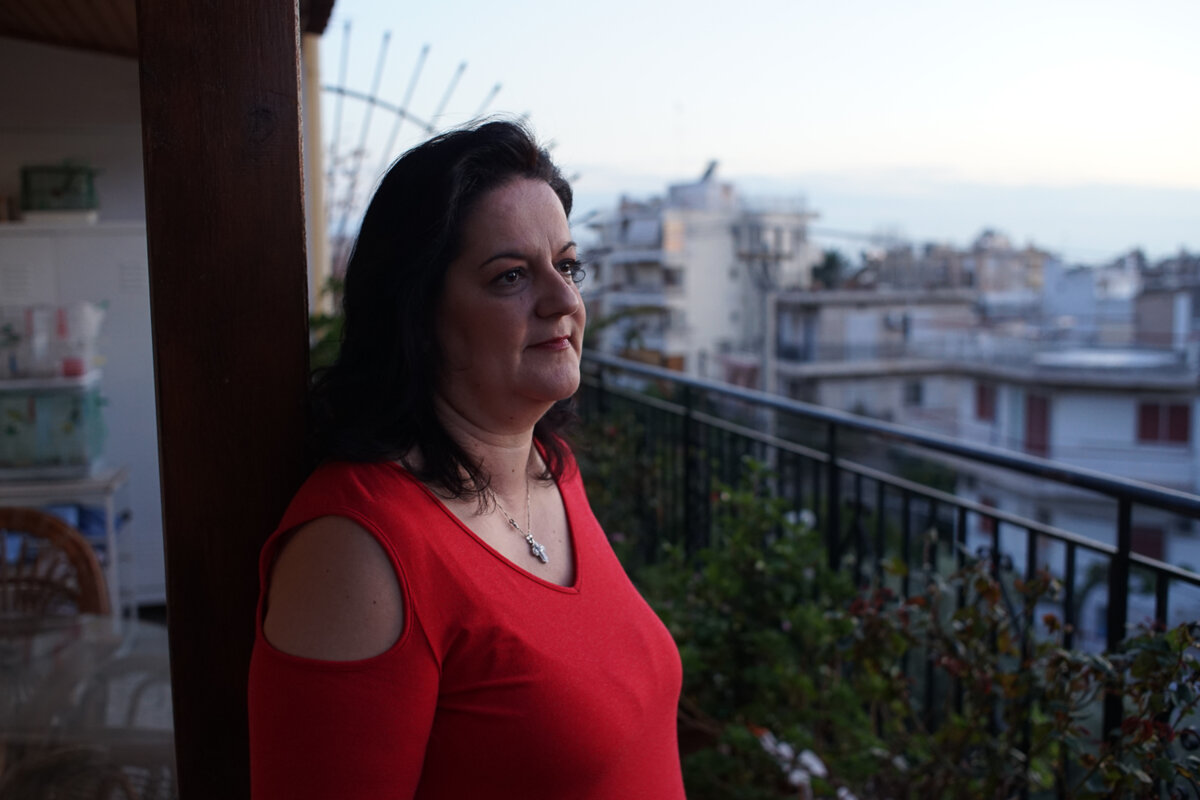
Enlargement : Illustration 1

Maria, 46, employee with a large petroleum company, who lives with her husband, two children and her mother in an apartment in the Athens suburb of Illioupoli.
When Mediapart first met Maria, in January 2015, she spoke of her profound anger at the social and economic situation Greece had found itself in, and against the old establishment which had reigned over the collapse of living conditions. That anger had earlier prompted her to join demonstrations before the Greek parliament, inspired by the 2011 Indignados anti-austerity movement that was launched in Spain. But, she said then, she had come to recognise that what was needed was a “change in the system of our country”, to “put an end to cronyism, notably regarding the monopoly of certain trades unions” which had “completely lied down in face of austerity measures”.
In 2015, after five years of a deepening financial crisis, she joined Syriza and took up a role with staff unions at her company, ELPE (Hellenic Petrolium) the largest refiner and supplier of petroleum products in Greece, which had engaged in a programme of job cuts. Meanwhile, Maria’s monthly salary had fallen by 15% to 1,200 euros, while taxes were steadily rising.
Today, her situation has completely changed, and for the better. “Our company is the goose that lays the golden eggs,” she said. “The management has changed, we have succeeded in re-establishing our salaries to the level they were before the crisis, and we are negotiating new pay rises. I am confident for the future of my children.” Her son this year sat his school leaving exams, while her daughter is following a course of theatre studies in the town of Nafplio, 150 kilometres west of Athens. “If my salary had not been brought back to its level of before the crisis, we could never have paid her rent,” Maria added.
What is uncertain is whether the partly state-owned ELPE will finally be totally privatised as was demanded in a bailout agreement in the summer of 2015 between Greece and its eurozone and other international lenders.
Maria wrote two letters to then-prime minister Alexis Tsipras arguing why the state should maintain its stake in the company. “I think he will do everything to keep it,” she said, speaking in May, just weeks before Tsipras called the snap general elections that were held on Sunday. “What’s good about Tsipras is that he fights. I hadn’t understood in 2015 why he transformed our ‘no’ in the referendum [editor’s note: on whether to accept the bailout terms] into a ‘yes’ to the lenders. I thought that he was going to continue with austerity policies. But since, he has done nothing other than to follow the right direction.”
Portfolio
Greek elections: the before and after Syriza, in nine portraits
1 photo
The general elections in Greece on Sunday returned the conservative New Democracy party to power in a landslide victory, ending the four-year coalition government led by the leftwing Syriza party of prime minister Alexis Tsipras. Syriza, once an outsider radical-left party, first gained power in January 2015 when Greece was socially and economically devastated by six years of a financial crisis that centred on the country’s snowballing debts, and which led to brutal and humiliating bailout conditions imposed by international institutions, chiefly the eurozone group and the IMF. At the time, Mediapart travelled to Greece to dress the portraits of nine men and women differently affected by the crisis, and in May this year, shortly before Tsipras called the snap general elections, returned to ask them about their current situations and how they judged the four-year term of the Syriza government. Their accounts here offer an insight into Sunday’s election result and the turnout of just under 60%, the second-lowest of any Greek general election.



